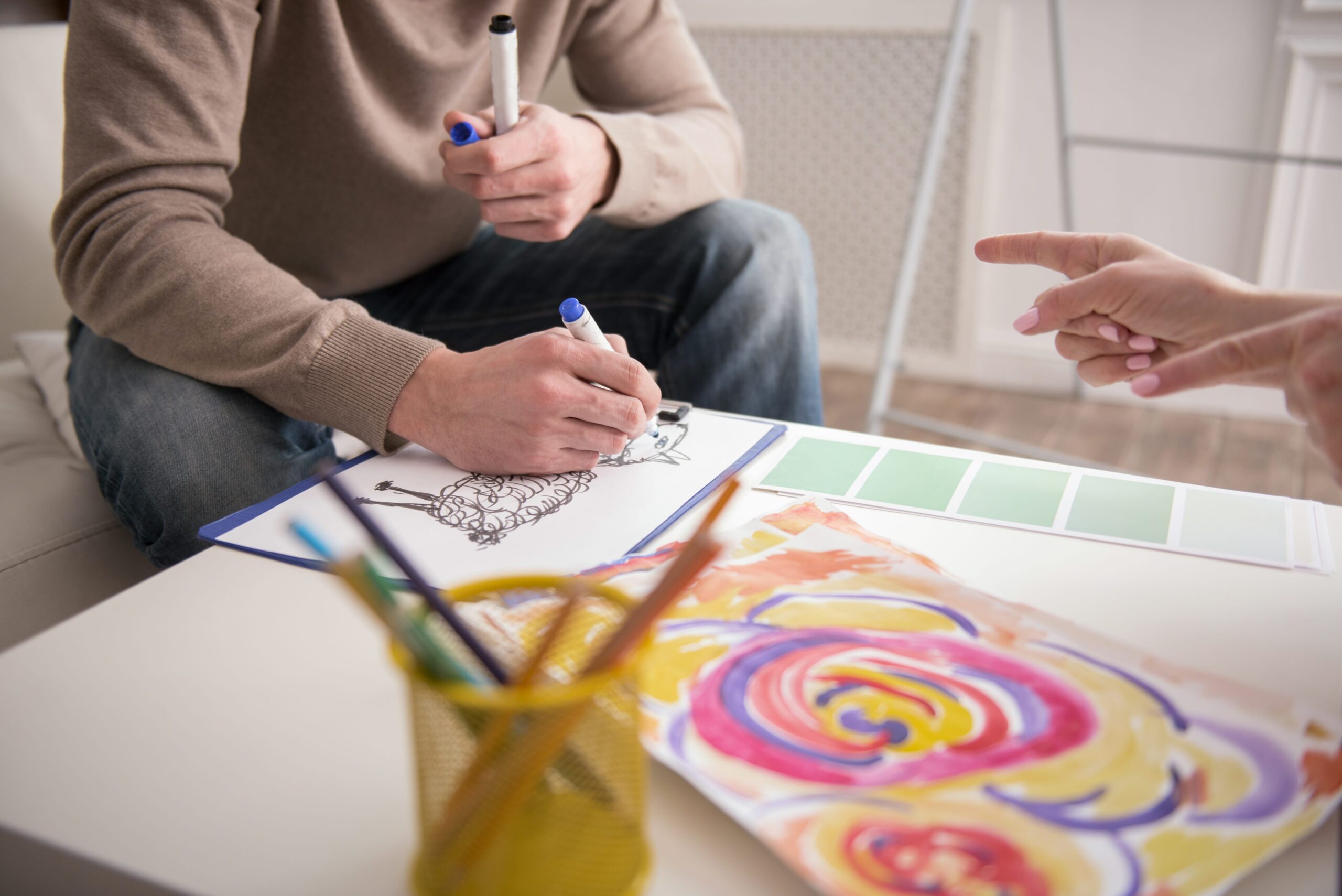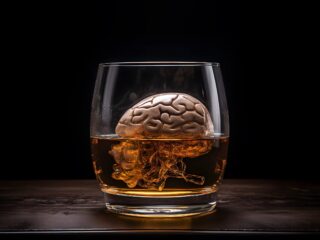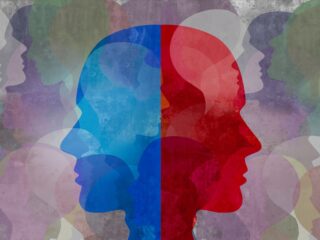Art therapy is a creative and expressive form of therapy that supports individuals during addiction treatment and recovery. It offers a unique approach to promoting self-awareness, emotional healing, stress reduction, and personal growth. Learning more about art therapy, its benefits, effects, and methods can help people decide if art therapy for addiction could be advantageous as part of their treatment plan.
What Is Art Therapy?
Art therapy is a therapeutic intervention that utilizes the creative process of making art to promote healing, self-discovery, and personal growth. It combines traditional psychotherapy techniques with artistic expression to provide individuals with an alternative means of communication and exploration. Through various art forms such as painting, drawing, sculpture, or collage, individuals can express their emotions, thoughts, and experiences in ways that may be difficult to articulate verbally.
Art therapy can be particularly beneficial for those struggling with addiction as it allows them to engage in a non-verbal and cathartic process that can address underlying issues contributing to their substance use disorder. Ultimately, art therapy provides a unique avenue for self-expression while facilitating emotional regulation and transformation within the context of addiction treatment.
Benefits of Art Therapy for Addiction
Art therapy for addiction offers numerous benefits that can greatly support the recovery process. First and foremost, it provides a non-verbal means of self-expression, allowing individuals to convey their thoughts and feelings safely and creatively. This can be especially helpful for those who struggle with verbal communication or find it challenging to express complex emotions.
Additionally, art therapy promotes emotional healing by providing an outlet for exploring underlying issues related to addiction. Through creating art, individuals can gain insight into their past experiences, trauma, and triggers contributing to substance abuse. This increased self-awareness helps them develop healthier coping mechanisms and make positive life changes.
Furthermore, engaging in art-making during therapy sessions promotes relaxation and stress reduction. It allows participants to focus on the present moment while encouraging mindfulness practices that enhance overall well-being.
Another benefit is that art therapy fosters personal growth by boosting self-esteem and confidence. As individuals create artwork and witness their progress over time, they experience a sense of accomplishment that contributes positively to their recovery journey.
Lastly, participating in group art therapy sessions cultivates a sense of connection among peers undergoing similar challenges. Sharing artwork within a supportive community reduces feelings of isolation while fostering empathy and understanding among participants.
Art Therapy Techniques and Goals
Art therapy incorporates various techniques and goals to support individuals in addiction treatment. Some common art therapy techniques include:
- Free-Form Art: Allowing participants to freely express themselves through various art mediums without any restrictions or guidelines.
- Collage Work: Creating collages using images, photos, and words from magazines or other printed materials to explore themes, emotions, and personal narratives.
- Guided Imagery: Visualizing specific scenarios or images the therapist provides to stimulate creativity and evoke emotional responses.
- Mandalas: Using circular patterns as a meditative practice for relaxation, self-reflection, and finding balance.
- Mask Making: Designing masks representing different aspects of one’s identity or emotions related to addiction for deeper exploration and understanding.
The overarching goals of art therapy for addiction include:
- Self-expression
- Emotional regulation
- Insight and awareness
- Coping skills development
- Empowerment and personal growth
How It Helps Addiction
Art therapy offers numerous ways in which it can support individuals in their journey of addiction recovery. Artistic expression allows individuals to process and express difficult emotions associated with addiction, such as shame, guilt, anger, or sadness. Art serves as a cathartic outlet for releasing these emotions healthily and constructively.
Through the creative process, individuals can gain insights into underlying issues contributing to addictive behaviors. They can explore trauma, past experiences, triggers, and behavior patterns that may have led to substance abuse. This self-exploration aids in understanding root causes and identifying healthier coping mechanisms.
Additionally, participating in art therapy diverts attention away from cravings and intrusive thoughts related to substance use. It provides a focused activity that engages the mind and redirects energy towards something positive and productive.
Art Therapy and Helping Mental Health
Art therapy is a valuable tool in supporting mental health and well-being. It allows individuals to externalize and symbolize their feelings through art. Creating art offers a safe space for exploration, self-reflection, and discovery of one’s personal narrative.
Artistic activities help reduce stress levels by promoting relaxation, mindfulness, and fostering a sense of flow or being “in the zone.” It distracts from daily worries while offering an outlet for self-care. Art therapy also encourages individuals to embrace their unique creativity without judgment or comparison to others’ work. The process of creating artwork promotes self-acceptance, boosts confidence levels as skills improve over time, and nurtures a positive self-image.
For those with difficulty expressing themselves verbally or grappling with communication challenges due to mental health issues such as anxiety or trauma-related disorders, art therapy provides an alternative form of communication that transcends words through visual representation.
Furthermore, engaging in the creative process fosters problem-solving skills, adaptation abilities, and resilience by encouraging experimentation, embracing mistakes, patience, and persistence all important attributes when dealing with various mental health issues.
Include Art Therapy for Addiction Treatment in Columbus, OH
We invite you to consider the powerful benefits of art therapy as part of your recovery journey. Ohio’s #1 addiction treatment center, Ohio Addiction Recovery Center in Columbus, offers comprehensive and personalized gender-specific treatment programs that include art therapy in a safe, caring, and supportive environment.
Take the first step to a healthier and creative path to recovery by contacting us today.






